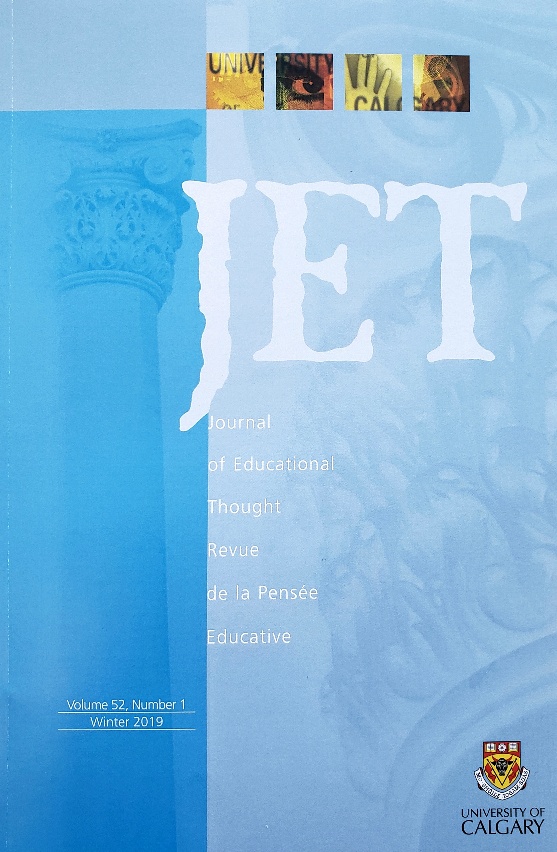Dewey and Bourdieu: Experience, Habit, and a New Direction for Education Reform
DOI :
https://doi.org/10.55016/ojs/jet.v52i1.68520Mots-clés :
John Dewey, Pierre Bourdieu, Education Reform, Educational Theory, Educational PolicyRésumé
This paper examines John Dewey’s theory of experience and interaction along with Pierre Bourdieu’s educational theory about social stratification, and argues that combined, these theories should be reconsidered to forge a new path in the wake of negative educative experiences rendered by the impact of the modern educational reform movement, which is driven by neo-liberal aims that focus on practical skills, standardized testing, and school choice. Through the transmission of cultural capital to students and taking into consideration the impact of social stratification, the school can be used as a place where students can seek their purpose in life through positive experiences and interactions that provide the conditions necessary to attain the goals and hopes that they deserve.
Téléchargements
Publié
Numéro
Rubrique
Licence
The Journal of Educational Thought retains first publication rights for all articles. The Journal grants reproduction rights for noncommercial educational purposes with the provision that full acknowledgement of the work’s source be noted on each copy. The Journal will redirect to the appropriate authors any inquiries for further commercial publication of individual articles. All authors wishing to publish in JET will be asked to fill in and sign a Consent to Publish and Transfer of Copyright agreement.
Authors must affirm that any submission to JET has not been and will not be published or submitted elsewhere while under considration by JET.

